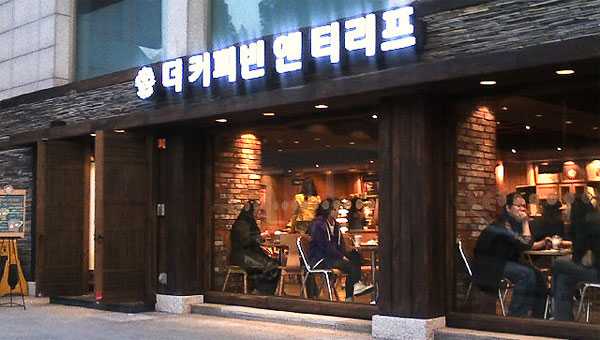South Korea’ Ministry of Environment has been grappling with growing criticism from the nation’s franchised coffee shop owners for its promise to give more incentives to customers using tumblers at coffee shops, industry officials said Monday.
The coffee shop owners regard the government measure to reduce the use of disposable cups as a burden on them, because they must pay a 10 per cent discount offered to tumbler users without government or franchise headquarters support.
Saying the environment ministry came up with an excessive discount rate, most coffee shop chains decided to maintain their previous discounts offered to customers who bring tumblers to their stores.
The decision aroused doubts on the effectiveness of the government’s new recycling policy, which was announced earlier this month to reduce plastic waste here.
On May 10, the environment ministry announced it would enhance voluntary partnerships with coffee shops and fast food restaurants to demand the businesses offer a 10 per cent discount to tumbler users and free refills for those who use the store’s reusable mugs.
The ministry said it will also revise a law related to refunds on empty disposable cups within this year, as well as pushing ahead with additional measures to reduce plastic waste.
The ministry reportedly summoned officials of 15 coffee shop chains and five fast food chains to the Korea Environment Corporation’s Seoul office a day after the announcement to urge them to follow the measures.
However, the companies disagreed with the government’s discount policy, according to industry officials.
Critics pointed out the new recycling policy weighs more on franchisees of budget coffee shop chains, such as Ediya and Paik’s Coffee.
“Ediya will continue to give a 100 won (US$0.09) discount to tumbler users as usual,” said a spokeswoman from Togo Communication, a PR agency for Ediya. “Each franchisee shoulders the costs, and the franchise headquarters do not intervene in the discount.”
Starbucks Coffee Korea, which directly operates all stores in Korea, said it will also maintain a 300 won (US$0.28) discount for tumbler users as before.
Industry officials say the discounts are not big enough to reduce the use of disposable cups.
Starbucks, which sells 150 million cups of beverages annually on average, served its beverages to only 3.8 million tumblers last year, according to industry officials.
The use of tumblers at other coffee shop chains in Korea is far less than that at Starbucks.
Against this backdrop, the environment ministry said 15 coffee shop chains and five fast food chains will sign an agreement on the new policy, Thursday.
In addition to the coffee shop chains, beverage makers are also concerned about the recycling policy urging them to stop producing coloured bottles.
Lotte Chilsung Beverage has been debating whether to change the colour of its signature Chilsung Cider bottle, because the colour change may damage the company’s sales.
On the other hand, breweries are still allowed to use coloured bottles to maintain the quality of their beer.

















